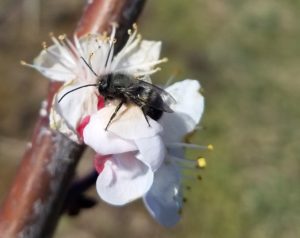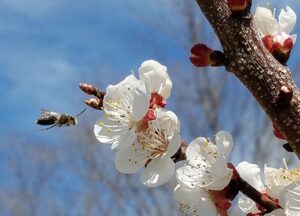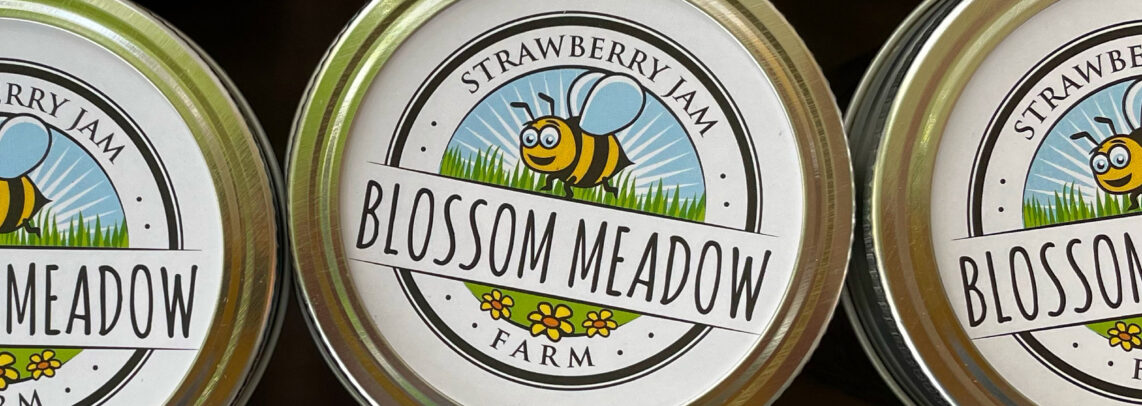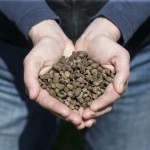Mason Bees
Masons are easy to keep spring bees and fabulous for pollinating apples, cherries, apricots, peaches and garden flowers. They are so good at pollinating that their furry undersides make them look like flying cheetos as they belly flop from flower to flower collecting nectar and pollen. Mason bees pollinate 2-3 times better than honeybees because of their furriness, way of flying and how they visit flowers. In fact, the USDA suggests 625 mason bees (250 females and 375 males) or 2 honey bee hives (which equates to about 120,000 honey bees) to pollinate an acre of apple trees – now that is quite a difference!
Mason bees are native to the Northeast so they are adapted to local, cool spring weather conditions. They will pollinate flowers even when it is cold and drizzly whereas honey bees only like to fly on nice weather days. Most crops bloom for 1-2 weeks so it’s important to make sure your workforce is buzzing.
Mason bees are gentle creatures who rarely sting. Mason bee females are gentle because the same individual that visits flowers to collect food (and pollinate) is the same individual that is laying eggs. She doesn’t want to get into a fight with you and risk dying. She wants to survive to lay eggs. Female mason bee primarily use their stingers as egg guides. Male bees of any species are not able to sting.
click here for more information on purchasing mason bee cocoons
click here for more information about mason bee housing
click here for more information about the mason bee lifestyle





[…] small farm in Southold NY focused on growing premium berries, making award-winning jam, and raising mason bees. Knowing “native pollinators pollinate 2-3 times better than honey bees and that more complete […]
[…] Mason Bees […]
[…] small farm in Southold NY focused on growing premium berries, making award-winning jam, and raising mason bees. Knowing “native pollinators pollinate 2-3 times better than honey bees and that more complete […]
[…] small farm in Southold NY focused on growing premium berries, making award-winning jam, and raising mason bees. Knowing that “native pollinators pollinate 2-3 times better than honey bees and that more […]